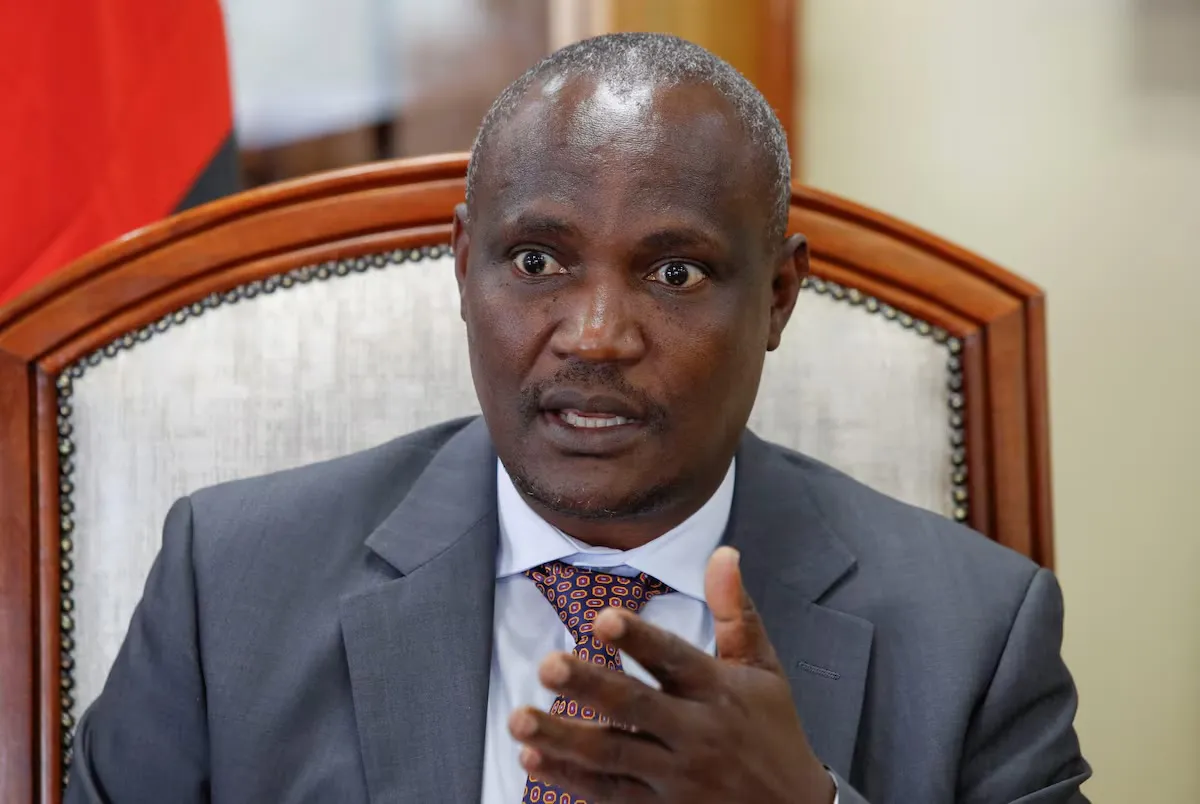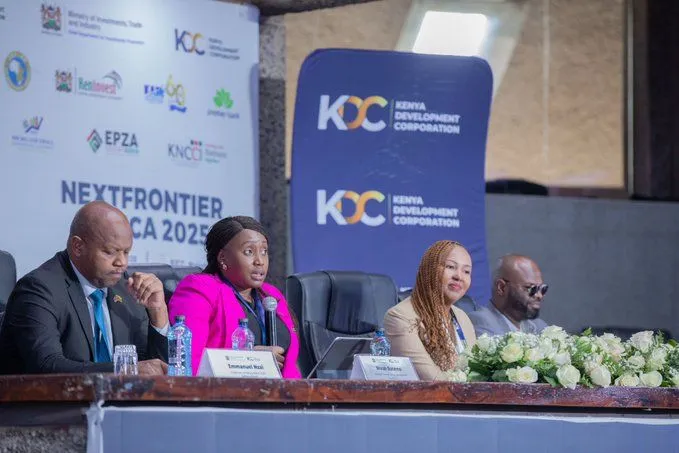Executives at Safaricom Ethiopia, a subsidiary of Kenya’s telecommunications giant Safaricom, have expressed concerns over what they describe as “monopolistic practices” by Ethio Telecom, Ethiopia’s state-owned telecom provider. In a recent meeting with Ethiopian lawmakers, Safaricom executives emphasized the need for equal access to open platforms and more competitive policies to ensure a level playing field in the rapidly evolving telecommunications market.
Allegations of Market Inequities
Wim Vanhelleputte, CEO of Safaricom Ethiopia, voiced frustrations about tariff disparities and limited interoperability in Ethiopia’s telecommunications sector. According to Vanhelleputte, Ethio Telecom imposes higher charges for calls made from its network to Safaricom Ethiopia, making it challenging for new subscribers to adopt Safaricom’s services.
Safaricom, which charges a flat rate for calls across networks, contends that such practices discourage competition and undermine efforts to enhance digital connectivity and financial inclusion in Ethiopia.
“We are asking if there is an opportunity to get both networks to give equal access to the customer so that they can use both networks and not get excluded from calling our network,” Vanhelleputte said during discussions with the Parliamentary Committee of Democracy Affairs in Addis Ababa.
The Role of Mobile Money Interoperability
A critical issue raised by Safaricom is the lack of interoperability between M-Pesa, its renowned mobile money platform, and Ethio Telecom’s Telebirr service. This absence of integration has created significant barriers to scaling digital financial inclusion in Ethiopia, where mobile money services have the potential to transform financial access for millions of citizens.
Safaricom executives revealed that even the company is required to pay taxes using Telebirr, limiting M-Pesa’s role in Ethiopia’s growing financial ecosystem. They urged policymakers to expedite the integration of mobile money platforms to foster inclusivity and support Ethiopia’s broader economic liberalization agenda.
“Monopoly is a contradiction to liberalization,” Vanhelleputte said, emphasizing that multiple fintech and banking institutions in Ethiopia should be allowed equal access to offer digital payment solutions.
Lawmakers Pledge Action
The Parliamentary Committee members promised to relay these concerns to the National Bank of Ethiopia (NBE) and other regulatory authorities. The Ethiopian Ministry of Transport has also taken steps to integrate mobile money into essential services, announcing plans to enable citizens to pay for fuel using platforms such as M-Pesa.
Safaricom Ethiopia’s Journey and Challenges
Since entering the Ethiopian market in 2021, Safaricom Ethiopia has captured over 5% of the market share, marking a significant milestone in a sector historically dominated by Ethio Telecom. However, the journey has not been without challenges.
Ethiopia’s telecom market, previously a government monopoly, was liberalized as part of broader economic reforms under Prime Minister Abiy Ahmed. Safaricom’s entry followed a competitive bidding process, during which the company secured a license for $850 million. The government’s aim was to enhance service quality, foster competition, and attract foreign investment.
Despite these reforms, Safaricom’s operations have been impacted by structural and economic challenges, including currency devaluation. In its latest half-year financial results, Safaricom reported a 17.7% decline in group profits, attributed largely to forex losses arising from the devaluation of the Ethiopian birr.
Ethiopia’s Telecom Landscape
Ethiopia represents one of Africa’s last untapped telecom markets, with a population exceeding 120 million and a mobile penetration rate of approximately 55%. The country’s liberalization of the telecom sector was seen as a landmark opportunity to bridge the digital divide and drive economic growth.
Ethio Telecom, which has dominated the market for decades, boasts over 70 million subscribers. However, its monopoly has faced criticism for stifling innovation and limiting consumer choice. The entry of Safaricom was expected to disrupt this dynamic, introducing competitive pricing, improved service quality, and innovative offerings such as M-Pesa.
Yet, challenges persist. Ethio Telecom’s established infrastructure and market dominance give it a significant advantage, while regulatory hurdles and political sensitivities further complicate the operating environment for new entrants like Safaricom.
A Tale of Two Markets: Kenya vs. Ethiopia
Interestingly, Safaricom faces allegations of monopolistic tendencies in its home market of Kenya. The company’s flagship mobile money service, M-Pesa, controls over 90% of Kenya’s mobile money transactions, raising concerns about its overwhelming market dominance.
In 2015, competitors such as Airtel Kenya and Equitel accused Safaricom of leveraging its market position to implement anti-competitive practices. Complaints included preferential tariffs for calls within its network and higher charges for calls to other networks.
Kenyan lawmakers have since debated the possibility of separating M-Pesa from Safaricom’s core telecom business to foster competition. These allegations mirror Safaricom’s complaints against Ethio Telecom, highlighting the complex dynamics of competition in emerging markets.
The Promise of Digital Financial Inclusion
Mobile money services like M-Pesa and Telebirr have the potential to revolutionize financial inclusion in Ethiopia, where a significant portion of the population remains unbanked. By providing secure and accessible platforms for transactions, savings, and credit, mobile money can empower individuals and small businesses, driving economic growth at the grassroots level.
However, interoperability between platforms is essential to unlocking this potential. Without seamless integration, users are limited in their ability to transact across networks, undermining the efficiency and inclusivity of the financial ecosystem.
Safaricom’s Broader Vision
Despite the challenges, Safaricom remains committed to its vision of transforming Ethiopia’s digital landscape. The company has invested heavily in infrastructure, customer acquisition, and innovative services, aiming to replicate its success in Kenya.
Safaricom’s CEO reaffirmed the company’s dedication to Ethiopia’s digital transformation:
“We want the country to benefit and to grow digital connectivity and financial inclusion. Those are priorities for the country as a whole.”
Implications for Ethiopia’s Economic Liberalization
Ethiopia’s ambitions to liberalize its economy and attract foreign investment hinge on its ability to foster a competitive and transparent regulatory environment. The telecom sector, as a cornerstone of modern economies, will play a pivotal role in shaping the country’s future.
To achieve this, Ethiopia must address concerns about monopolistic practices, ensure fair competition, and promote collaboration among market players. The integration of mobile money platforms and the equalization of access to telecom infrastructure will be critical steps toward realizing these goals.
Conclusion: A Path Forward
Safaricom Ethiopia’s allegations of unfair competition shine a spotlight on the challenges of transitioning from a monopolistic market to a competitive one. While progress has been made, much work remains to create a level playing field that benefits consumers, businesses, and the economy as a whole.
As Ethiopia navigates its path toward liberalization, the experiences of market players like Safaricom will provide valuable lessons. For Safaricom, the journey in Ethiopia is not just about market share but about contributing to a broader vision of digital and financial inclusion in Africa’s second-most populous nation.
Ready to take your career to the next level? Join our dynamic courses: ACCA, HESI A2, ATI TEAS 7 , HESI EXIT and NCLEX – RN !🌟 Dive into a world of opportunities and empower yourself for success. Explore more at Serrari Ed and start your exciting journey today! ✨
photo source: Google
By: Montel Kamau
Serrari Financial Analyst
4th December, 2024
Article, Financial and News Disclaimer
The Value of a Financial Advisor
While this article offers valuable insights, it is essential to recognize that personal finance can be highly complex and unique to each individual. A financial advisor provides professional expertise and personalized guidance to help you make well-informed decisions tailored to your specific circumstances and goals.
Beyond offering knowledge, a financial advisor serves as a trusted partner to help you stay disciplined, avoid common pitfalls, and remain focused on your long-term objectives. Their perspective and experience can complement your own efforts, enhancing your financial well-being and ensuring a more confident approach to managing your finances.
Disclaimer: This article is for informational purposes only and does not constitute financial advice. Readers are encouraged to consult a licensed financial advisor to obtain guidance specific to their financial situation.
Article and News Disclaimer
The information provided on www.serrarigroup.com is for general informational purposes only. While we strive to keep the information up to date and accurate, we make no representations or warranties of any kind, express or implied, about the completeness, accuracy, reliability, suitability, or availability with respect to the website or the information, products, services, or related graphics contained on the website for any purpose. Any reliance you place on such information is therefore strictly at your own risk.
www.serrarigroup.com is not responsible for any errors or omissions, or for the results obtained from the use of this information. All information on the website is provided on an as-is basis, with no guarantee of completeness, accuracy, timeliness, or of the results obtained from the use of this information, and without warranty of any kind, express or implied, including but not limited to warranties of performance, merchantability, and fitness for a particular purpose.
In no event will www.serrarigroup.com be liable to you or anyone else for any decision made or action taken in reliance on the information provided on the website or for any consequential, special, or similar damages, even if advised of the possibility of such damages.
The articles, news, and information presented on www.serrarigroup.com reflect the opinions of the respective authors and contributors and do not necessarily represent the views of the website or its management. Any views or opinions expressed are solely those of the individual authors and do not represent the website's views or opinions as a whole.
The content on www.serrarigroup.com may include links to external websites, which are provided for convenience and informational purposes only. We have no control over the nature, content, and availability of those sites. The inclusion of any links does not necessarily imply a recommendation or endorsement of the views expressed within them.
Every effort is made to keep the website up and running smoothly. However, www.serrarigroup.com takes no responsibility for, and will not be liable for, the website being temporarily unavailable due to technical issues beyond our control.
Please note that laws, regulations, and information can change rapidly, and we advise you to conduct further research and seek professional advice when necessary.
By using www.serrarigroup.com, you agree to this disclaimer and its terms. If you do not agree with this disclaimer, please do not use the website.
www.serrarigroup.com, reserves the right to update, modify, or remove any part of this disclaimer without prior notice. It is your responsibility to review this disclaimer periodically for changes.
Serrari Group 2025





